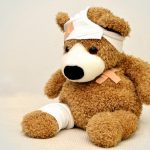How to Prepare Yourself for a Car Accident
Most of us don’t want to think about getting in a car accident, but unfortunately, if you drive, you will most likely have one at some point. According to Forbes, over the course of a typical long, driving lifetime, you should have a total of three to four accidents. Chances are these crashes won’t be deadly. But they will put a ripple in your day. To ease the stress of the inevitable, here are a few things you can do to help yourself be prepared for those most inconvenient of road realities.
Make a Safety Kit
Keep these road-kit items in the car just in case the unexpected happens. They can come in handy during an accident or if you have car trouble and find yourself stranded.
- Smartphone charger: Having a car-battery-powered charger in the glove box on on the console will ensure you can call for help and take pictures of the scene.
- Road flares: At night, these can help alert to a car accident up ahead and prevent anyone else from becoming involved.
- Flat tire kit or tire-puncture sealant: Having these can fix a flat tire quickly and give you enough drive time to get to a tire store so the flat can be replaced or fixed permanently.
- Jumper cables: These can be a life saver in a dead battery or drained battery situation.
- Flashlight: Have a weatherproof model with a high beam so you can flag down emergency vehicles and examine damage from the accident if it is dark.
Have an Accident Incident Card
In the stress of the moments following a car accident, it is hard to remember all the information you need to document the incident. Northern Nevada Chiropractic has created an Accident Incident Card that walks you through all the necessary information you need to gather before leaving the scene, such as:
- Date
- Time
- Location
- Other driver’s information
- Witness information
Download your Card here. Print it out and put it in your glove box with your insurance and vehicle registration information.
Be Ready with Important Documents
You should always have the following in your glovebox or on your person:
- Drivers license
- Insurance information
- Insurance agent contact information
- Vehicle registration
- Health insurance plan card or information
- Car accident incident card
- Phone charged and ready
While we hope you never need this important information, you’ll be glad you planned ahead should you find yourself in a car accident.





